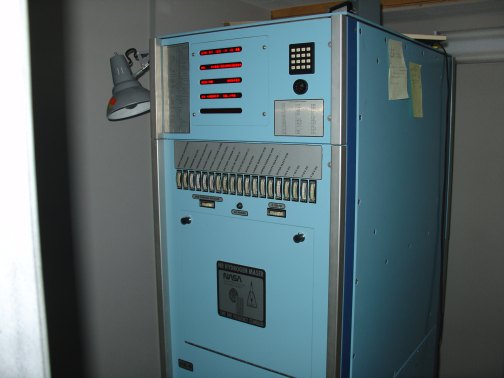 The Atomic Clock (or Hydrogen Maser)
The Atomic Clock (or Hydrogen Maser)
Radio astronomy and geodesy require the very careful measurement of timing signals in order to extract useful data from observations.
Algonquin Radio Observatory has its own atomic clock or hydrogen maser to keep track of time precisely. Accurate to 1 part in 1015, the clock loses less than one second in 30 million years. The clock's timekeeping relies on the measurement of hydrogen atoms as they decay from one electronic state to another. A small viewing window allows visitors touring the facility to see the purple discharge glow that the maser emits during operation. The clock must be kept in operation 365 days a year.
The clock is also utilized along with a network of GPS antennas to compute corrections to the orbits of Global Positioning Satellites (GPS) in order to remove orbital precession. Without this vital information, GPS receivers would slowly incur errors in position, and degraded navigation performance would result.